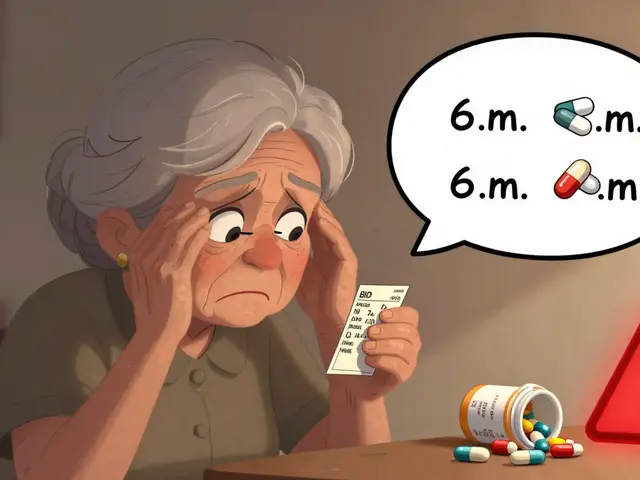
Understanding Chlorambucil and Its Role in Cancer Treatment
As someone who has a keen interest in learning about various medications and their effects on our body, I came across Chlorambucil, a chemotherapy drug used in treating certain types of cancer. This drug, although very effective in fighting cancer cells, can have significant effects on our immune system as well. In this article, I will be discussing the various aspects of Chlorambucil and how it affects our body's defenses.
What Is Chlorambucil and How Does It Work?
Chlorambucil belongs to a class of medications called alkylating agents, which are used for treating cancer by interfering with the DNA of the cancer cells. By doing so, it prevents the cancer cells from dividing and growing, ultimately leading to their death. This drug is primarily used to treat chronic lymphocytic leukemia (CLL), Hodgkin's lymphoma, and non-Hodgkin's lymphoma. It may also be used in combination with other medications for treating other types of cancer.
Chlorambucil's Impact on the Immune System
While Chlorambucil effectively targets cancer cells in the body, it also affects the normal cells, particularly the ones in our immune system. Our immune system is made up of various types of white blood cells that help protect our body from infections and diseases. However, because Chlorambucil impacts the growth and multiplication of these cells, our immune system becomes weaker and less efficient at fighting off infections.
Decreased White Blood Cell Count
One of the most common side effects of Chlorambucil is a decrease in the number of white blood cells, particularly neutrophils, which are crucial in fighting off bacterial infections. This condition, called neutropenia, can make a person more susceptible to infections and may even lead to serious complications if left untreated. It is essential for individuals undergoing treatment with Chlorambucil to have their white blood cell count monitored regularly to avoid potential complications.
Impaired Antibody Production
Another aspect of our immune system that can be affected by Chlorambucil is the production of antibodies. Antibodies are proteins produced by our immune system that help neutralize harmful substances, such as bacteria and viruses. Chlorambucil can interfere with the function of B lymphocytes, the white blood cells responsible for producing antibodies. As a result, our body's ability to produce these essential proteins may be reduced, making it more difficult to fight off infections.
Managing the Effects of Chlorambucil on the Immune System
Although the impact of Chlorambucil on the immune system can be quite significant, there are ways to manage these side effects and maintain a healthy immune system during cancer treatment. Here are some strategies that can be helpful:
Regular Monitoring of Blood Counts
As mentioned earlier, keeping a close eye on the white blood cell count is essential during Chlorambucil treatment. By doing so, any significant drop in the number of white blood cells can be detected early on, and appropriate measures can be taken to prevent complications and infections.
Preventive Measures to Avoid Infections
Since the immune system is weakened during Chlorambucil treatment, taking preventive measures to avoid infections becomes even more critical. These may include practicing good hygiene, avoiding contact with sick individuals, and staying up-to-date with vaccinations.
Proper Nutrition and Lifestyle Choices
Ensuring that the body receives all the necessary nutrients to maintain a healthy immune system is vital during cancer treatment. Eating a well-balanced diet, getting enough sleep, and engaging in regular exercise can help boost the immune system and improve overall health.
Consideration of Immune-Boosting Medications
In some cases, doctors may recommend medications that can help boost the immune system during chemotherapy treatment. These medications, called growth factors, can stimulate the production of white blood cells and help reduce the risk of infections.
Conclusion
While Chlorambucil plays a crucial role in treating certain types of cancer, it is essential to be aware of its effects on the immune system. By understanding these effects and taking appropriate measures to manage them, individuals undergoing treatment with Chlorambucil can maintain a healthy immune system and reduce the risk of complications associated with a weakened immune system. Always consult with your healthcare provider for specific advice and guidance tailored to your unique situation.






Liam Dunne
June 20, 2023 AT 12:52Vera Wayne
June 21, 2023 AT 14:14kanishetti anusha
June 22, 2023 AT 07:05roy bradfield
June 23, 2023 AT 11:30Patrick Merk
June 23, 2023 AT 16:15Rodney Keats
June 23, 2023 AT 20:45Laura-Jade Vaughan
June 25, 2023 AT 10:19Eric Gregorich
June 26, 2023 AT 21:10Koltin Hammer
June 28, 2023 AT 08:24Phil Best
June 30, 2023 AT 02:54Parv Trivedi
June 30, 2023 AT 08:01